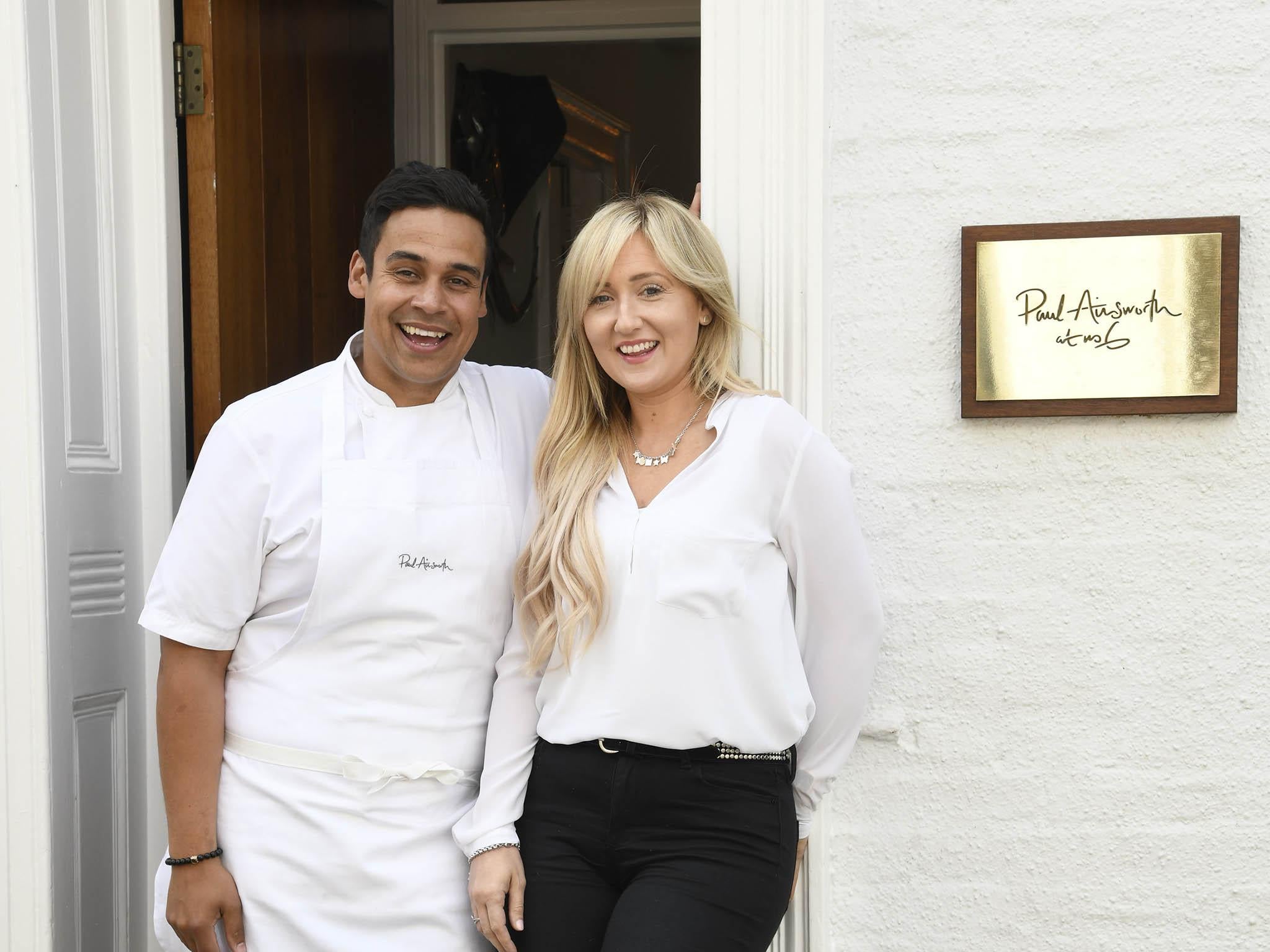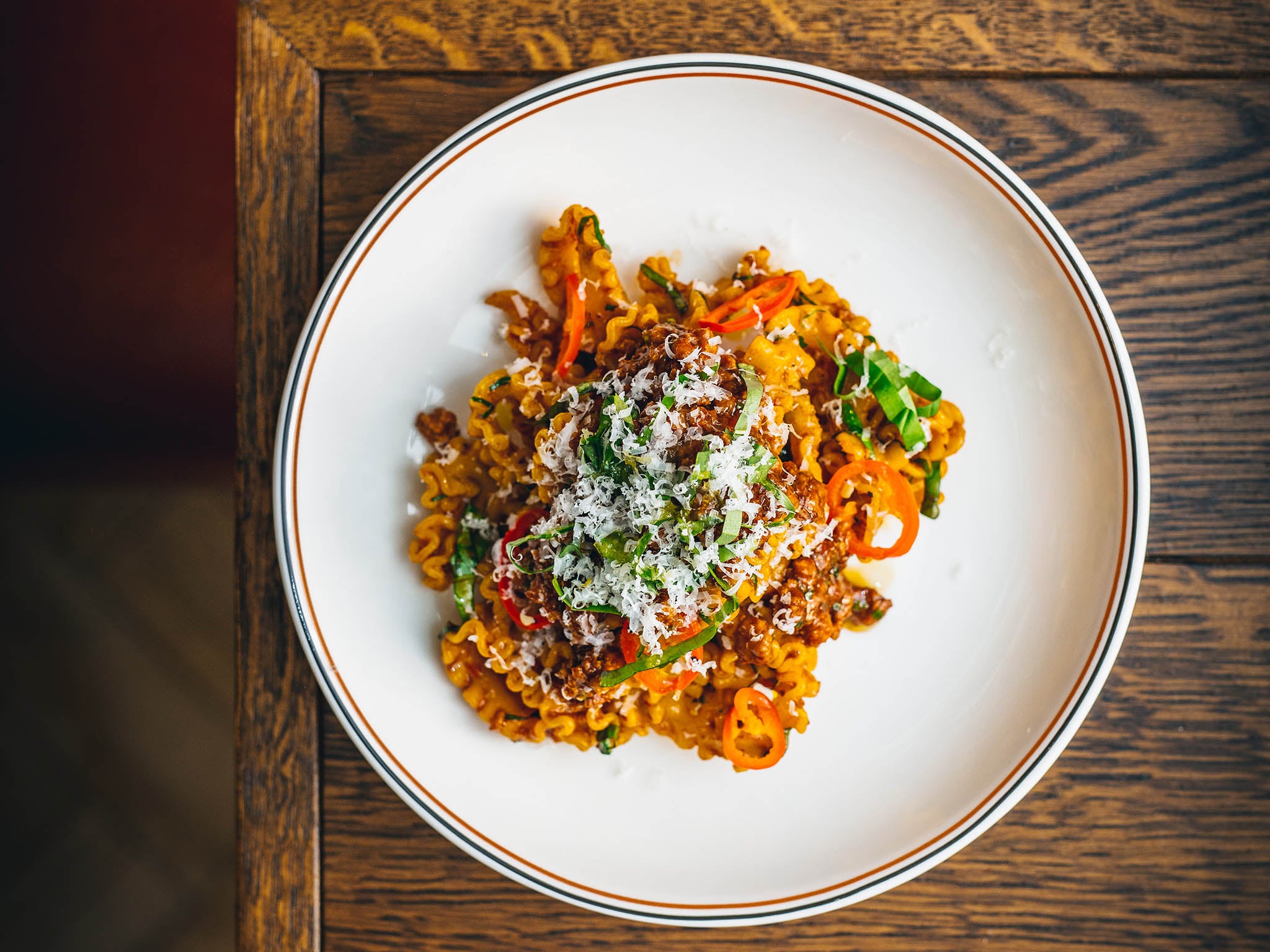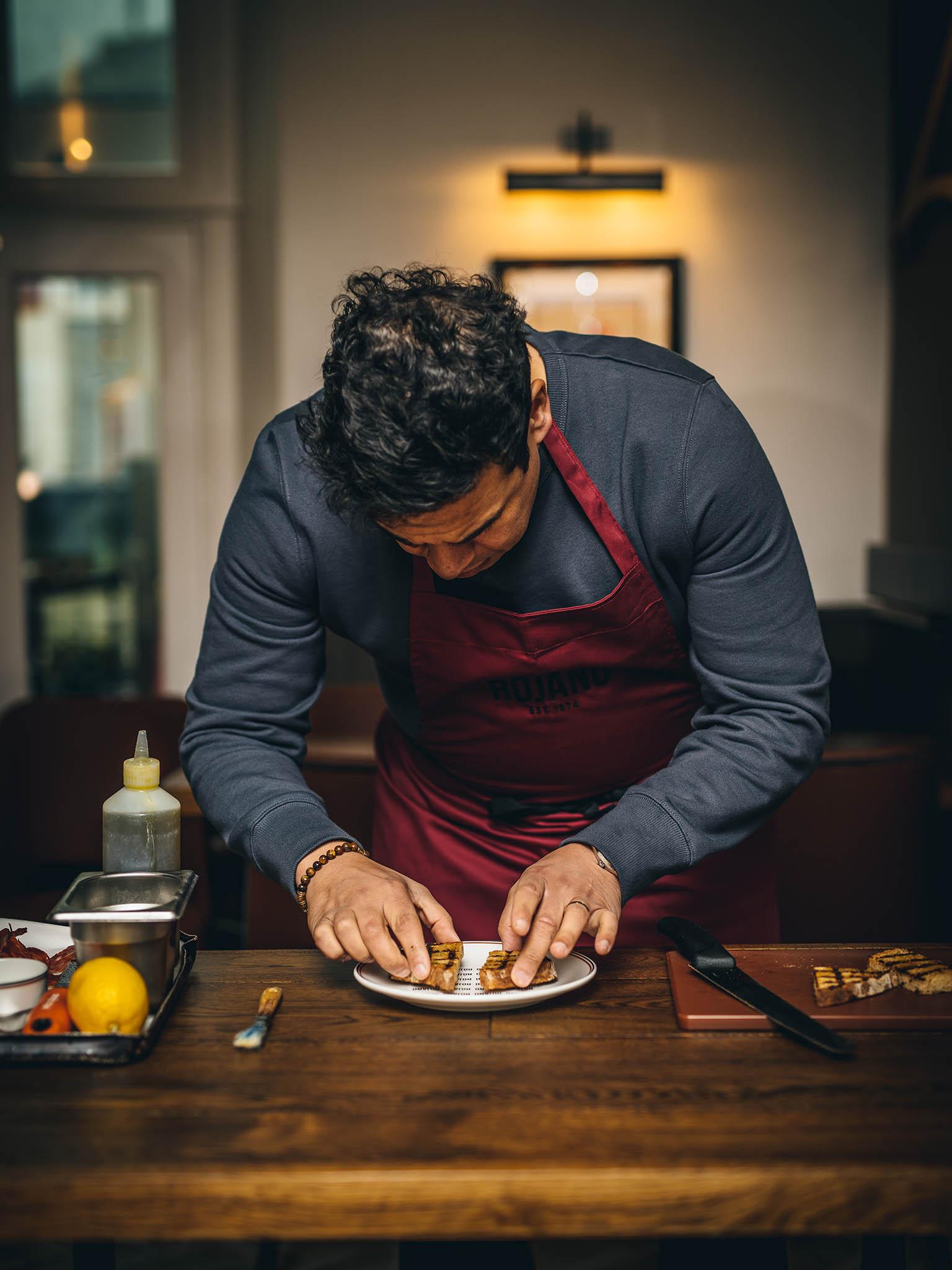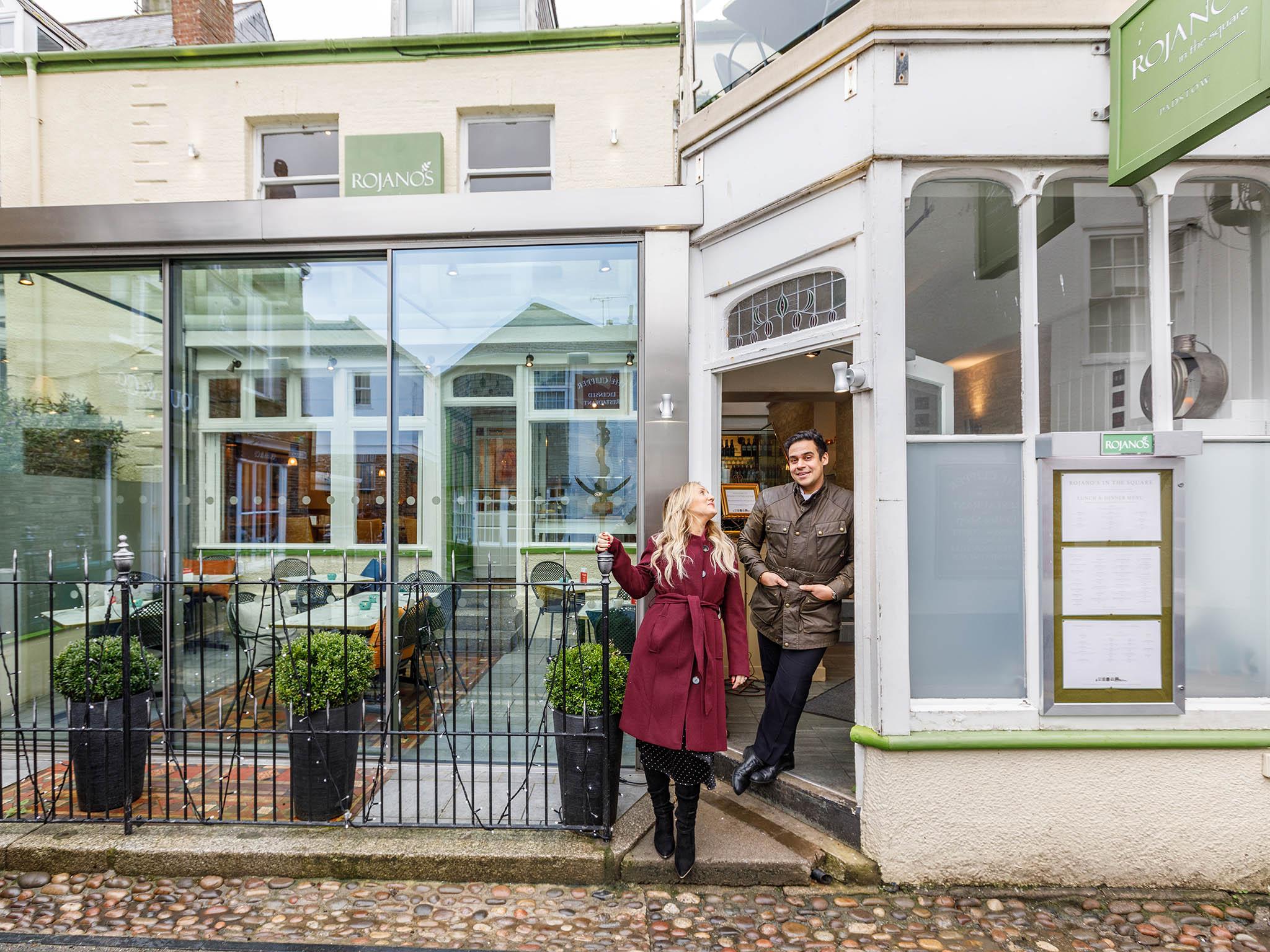Paul Ainsworth on Gary Rhodes, Great British Menu’s snowball moment and working with his partner
The No 6 chef talks to Emma Henderson about hard graft under Gordon Ramsay, helping youngsters into catering and his burgeoning foodie empire in Cornwall


How did you and your wife Emma come to run No 6 in Padstow?
I’d been in the Gordon Ramsay Group in London for six years, and then from there I went onto Proteus with Marcus Wearing and I was coming to the end of my time there and I wasn’t really sure about what I wanted to do next, and I was thinking about working abroad. Then I met somebody who knew Padstow very well.
I had actually been there the year before, completely coincidentally, and had dinner at Rick Stein’s seafood restaurant. When I was walking around the village, I actually peered in through the window on No 6 which was boarded up and for sale. I didn’t think anything of it and had a typical weekend in Padstow as everybody does.
Then a year later, I was offered the opportunity – along with three others – to set up a cooperative in Padstow and I become head chef. That was how it all started. I had a great opportunity to write my very first menu and showcase my own dishes.
Fast forward to three years later and the opportunity came for myself and Emma to buy the lease. So we took it on. In 2009 we renamed it and rebranded it Paul Ainsworth at No 6 and then three years later we won a Michelin star. Then slowly but surely along came the other businesses.
How did you find moving from London to north Cornwall?
It was definitely a culture shock. Back then, it wasn’t about the great beaches or this slower pace of life. If anything it was harder to get a restaurant off the ground. I never had any aspirations or imagined my life being in Cornwall.
But because of the industry I’m in, I wasn’t finishing work at 5pm and then going home and thinking, “oh this is a bit different, what’s there do to”. I was going to work at 6.30am and finishing early hours of the morning, as I was just so driven because of the opportunity I’d been given.
When you’re 27, from a city, lived in the capital you could think “is Cornwall where I want to live for the rest of my life”. It’s only now, being 40, having a little girl, my wife and our dog that I think I’m the luckiest man in the world. I have things going on in London, like filming, so it’s nice to go there, but it’s the best feeling knowing I can come back to this wonderful part of the world. There’s so much going on down here, especially here in the north. It’s on an incredible trajectory of growth which is a fantastic thing to be a part of it.
Do you feel like the new Rick Stein starting your own mini empire in Padstow?
Ha! I don’t look at it like that. What we’ve created is great. Caffé Rojano is not a watered down version of No 6. We’re doing our version of modern cooking that has classical roots, but we’re trying to showcase the incredible ingredients that we’ve got right here in Cornwall.
I buzz just as much from doing a gorgeous sourdough pizza at Caffé Rojano as I do cooking high-end cuisine at No 6
That’s what we’re most proud of, that there’s something for everyone and we’ve been quite diverse in our repertoire. I don’t just cook high-end haute cuisine. I buzz off of doing a beautiful piece of piece with truffles at No 6 as much as I do doing a gorgeous sourdough pizza at Caffé Rojano, or doing a really good ploughman’s at the Mariners pub in nearby Rock.

I spend most of my time at No 6, and so often I’ll hear from people that they’re going to Rojano or getting the boat over to Rock – the short ferry ride is so idyllic, and then it’s a three minute walk to the Mariners.
We’ve also got our little boutique hotel, the Townhouse, and the cookery school which is then a chef’s table in the evening. They’re all so different from one another. We started doing breakfast at Rojano too this year. In London breakfast is a serious thing, so I saw a small opportunity to do breakfast really well, which suits people on holiday and local people too.
How do you and Emma manage working together?
I’m not going to lie, it can be very demanding and tough, because we’re both so passionate about what we do and we both care so much. And when you care like that, I don’t care what anyone says about it being amazing – as all they see is it from the outside – behind the scenes to keep that standard is hard.
For instance, Emma’s mantra for guests staying is that they’ve got to feel like they’re the only ones who have ever stayed there and it’s got to constantly feel brand new. We set ourselves high standards and we just want to do the best we can, and to do that it can be very demanding on your relationship. When you get home, other people might think that it would be nice to talk about your day, but actually you don’t want to. You want home to be home. You want to remember why you’re together and that you’re not together just for business. It’s only in the last six months that Emma and I have really been working towards getting that balance right. It can be very challenging, but we know what we signed up to and you just have to get on with it. It’s not as easy as some people might think.
In 2011 you were on The Great British Menu, how did that change things for you?
That to me was the snowball moment, and from there it just gained momentum.
We had been in Padstow since late 2005 and I made lots of mistakes. I got the food offering wrong and I didn’t have any identity of my own, I was just cooking pretty much what I’d learnt with Gordon and Marcus. Summers ticked along nicely, Padstow is where you’d want to be in Cornwall – it’s a busy place, but it’s seasonal and we struggled in the winter. Then Great British Menu came along, and I managed to get my dish all the way to the banquet and won the dessert course.

I think if you did something like that TV show now, it wouldn’t work, but back then it went mad. After I made a dish in one episode, restaurateur Oliver Peyton said “there’s a new kid in town, get yourself down to Padstow”. The phone was always ringing. It went berserk. We couldn’t keep up with it, we had this little website and that crashed – it was absolutely carnage. But it was amazing, and that’s where it all started.
Then Saturday Kitchen asked if I want to come on the show with James Martin, then bits of TV came along and then it just gained more momentum. GBM also opened up so many great relationships with chefs: one being Tom Kerridge, who is now my best friend.
Who taught you to cook?
I can’t really name one person who taught me to cook. I don’t have any of those stories where I picked vegetables with my gran, but I was born into hospitality. My mum and dad and a 10-bed B&B. I really grew up knowing that these customers were paying the bills for our family. If I had to credit two people who played an important part, it would be my mum and dad.
It was only when I got a bit older and started going round my friend’s houses that I realised none of my friend’s dads cooked – it was all their mums. My dad was a brilliant cook – he did all the evening meals, six days a week. Then on a Friday my mum, who again is a fantastic cook, would take over. She’s from the Seychelles, and met my dad there who was working there in the Seventies. They came back and set up the guesthouse. That’s why the cookery school is called Mahe. That’s where my mum was born and it’s also the name of the island my parents met.
Gary Rhodes gave you your break. What was it like to work for him?
Let me just give you an overview of Gary as a person. When I was at catering college at 16 years old, my lecturer was the godfather to Gary’s children. Gary gave my lecturer a call when he was opening a restaurant in Pimlico and asked if he had any students. My lecturer said he had three – I was one of them – and he said he’d send me up.
I drove up London to meet Gary. It was so overwhelming. He was the first celebrity I’d ever met – not celebrity chef – celebrity. I just remember his hair being so full on. It was almost like I wanted to put my hand out and touch him!
I got a job, but the rent in London was a sticking point. So Gary said: “I’ll put you up in the hotel above the restaurant for three months, save up all your wages and then you’ll have enough for your deposit and first month’s rent.” If he hadn’t have done that, it would have been very hard for me to move.
From a chef’s point of view, he was so ahead of his time. Everything he stood for then is so relevant now: buy British, support the local area, keep the dishes about the ingredients. He truly was a pioneer. He was incredibly inspiring to work for.

I remember when I started there, they made bread and butter pudding twice a day. After I’d been there for seven months they said I could try it. It was like I’d just been accepted. At the time I didn’t truly understand cooking and know what went with what. Then it all started to slot into place. I tried the pudding it was just full of vanilla. To this day i remember it – there are certain things you try in your life, and think “oh my god, that’s off the scale”.
You also worked with Gordon Ramsay – how did he influence your career?
I spent six years there and they were some of the best – and the hardest – days of my life. I can only describe it to you as someone working in the forces, then going “OK I want to be SAS”. That’s what it was like going to work at Restaurant Gordon Ramsay: it was phenomenal. It was hard, it was brutal at times but it taught me so much and it disciplined me as a chef and it gave me such an extensive repertoire that I count my lucky stars.
Don’t ever get Gordon Ramsay mixed up with the guy you see on ‘Hell’s Kitchen’ – people need to remember it’s an entertainment show
There were two very special things about my time there. One was that I there for over a year when it went from two Michelin stars to three – not many chefs can say that they’ve experienced that. A three star restaurant only comes around once in a blue moon in the UK.
Don’t ever get Gordon mixed up with the guy you see on Hell’s Kitchen – people have got to remember that’s an entertainment show. Gordon Ramsay as a chef and a restaurateur is just world class and another level.
It wasn’t just the cooking but how he managed people – yes I’d regularly get thrown off service – literally grabbed by the back of my apron and told to go and clean the fridge downstairs. I’d be there sobbing, as a 20 year old, so gutted that I’d messed up. But then every single time, he’d come charging down the stairs – I knew Gordon’s footsteps – and he’d say ‘come here’ and then he’d sit me down and explain to me why I was wrong. First of all he’d talk in detail about what I’d overcooked, over seasoned and why he’d had to take me off service. The one thing that sticks in my mind is that when people are paying a lot of money for their food, they don’t know it’s me in the kitchen messing up – all they will do if it’s not right is walk away and think Gordon Ramsay’s restaurant is crap. And that’s the reason why the environment can be very intense.
You have an academy training young chefs – how important is it for Cornwall and its young people?
I’m patron for a charity called Springboard, which helps youngsters into employment. I wanted to try and be a small part of the solution. I don’t think the skill shortage in the industry is down to the fact that all of a sudden parents are giving birth to people who are useless at catering. The reason is life has changed. Just because I would work 18 hours a day, it doesn’t mean that youngsters want to do that now. And it doesn’t mean that because I did it, it makes it right.
Once we can offer people a better quality of life and pay them for the work that they do – which is what we should be doing – then I guarantee we won’t have a problem of people not wanting to come into this industry. You have to adapt. You can’t say “oh I did it like that”, as you just sound like a dinosaur.
Food has undergone a revolution – everyone loves cooking and wants to know where the food has come from.
How has Cornish food changed in the last decade?
When I first moved here there were some suppliers – you could get some veg here and some Cornish cheese there and obviously the seafood has always been world class, but what you’ve got now is just an absolute abundance of people really embracing the enterprise and growth of Cornwall and really doing great stuff. Like the guys at Tarquin’s producing really good gin, farms with brilliant veg where you can just go and pick it. Philip Warren Butchers is one of the best butcher in the UK, supplying incredible Michelin star restaurants. Our fish supplier pretty much supplies every Michelin star restaurant in the country. And you’ve got great restaurants opening up too. The Ethicurian, The Pig, just outside of Padstow in Harlyn – it’s great for the area.
Paul Ainsworth runs three eateries in north Cornwall, along with a boutique hotel, cookery school and academy; paul–ainsworth.co.uk
Join our commenting forum
Join thought-provoking conversations, follow other Independent readers and see their replies
Comments